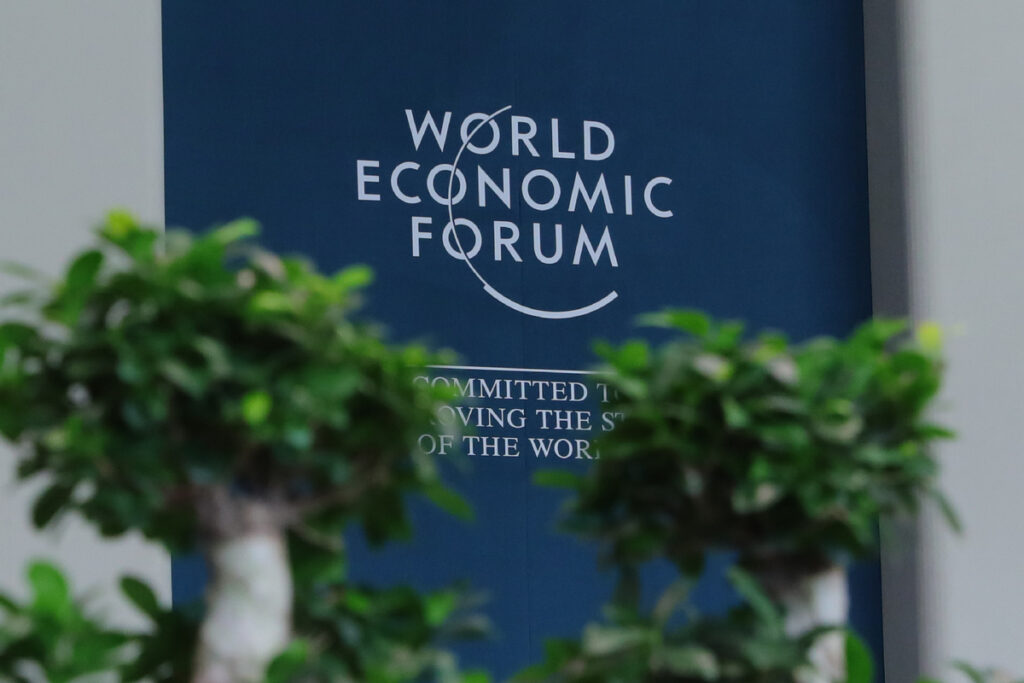World Economic Forum Report Finds: 10 Measures to Close the Emissions Reduction Gap

Key Impact Points:
- While individual climate action exists, it’s not enough. A massive 600-gigaton emissions gap needs closing to reach 1.5°C goals. Governments and businesses must shift to systemic actions for drastic impact.
- Large companies can wield significant influence by accelerating supplier decarbonization. Over 10% of global emissions likely reside in the supply chains of just the 1,000 largest companies.
- Businesses can help customers make greener choices with minimal price impact. Reducing the first 50% of a product’s emissions may only require a sub-1% price increase.
- Collective action within and across industries can be transformative. Targeting key “pinch points” and forming cross-industry buying groups can significantly advance decarbonization efforts.
- Governments must step up with ambitious net-zero targets, carbon pricing, increased green financing, and streamlined permitting processes. Drastic measures like technology bans may be necessary if progress remains slow.
- The Alliance of CEO Climate Leaders, representing over $4 trillion in revenue, calls for a shift from incremental to systemic actions. They will discuss critical net-zero initiatives at the World Economic Forum 2024.
The Alliance for CEO Climate Leaders, a CEO-led community facilitated by the World Economic Forum that is committed to accelerating the net-zero transition, released a new report calling on businesses and governments to shift from incremental to systemic actions to meet climate goals.
The report, Bold Measures to Close the Climate Action Gap: A Call for Systemic Change by Governments and Corporations, was published in partnership with the Boston Consulting Group (BCG) and complements the State of Climate Action report launched prior to the COP28 climate change conference.
According to the analysis, while individual climate action has increased, collectively the sum is not sufficient to reach the level of systemic change needed. There is a 600-plus gigaton gap in national emissions reduction ambition and policy that needs to be closed to limit global warming to 1.5°C. As such, stronger government action is needed.
Meanwhile, looking at CDP data for the 1,000 largest companies globally, likely well over 10% of global emissions are in the supply chains of those companies– showing the dramatic systems impact that the world’s largest companies could have.
“The first UN global stocktake and the first part of this report have highlighted a large climate action gap that we are not on track to close,” said Pim Valdre, Head of Climate Ambition Initiatives at the World Economic Forum. “We need to urgently shift into delivery mode, focusing on immediate actions with outsized impacts. Enabling these actions calls for public-private action to drive the right policies, technologies and financial solutions needed to achieve a system-wide transformation.”
While COP28 showed new impactful steps, such as the global agreements to triple renewable energy and double energy efficiency by 2030, more is needed to deliver on commitments, the report concludes.
The Alliance of CEO Climate Leaders, which consists of more than 120 top companies from diverse industry sectors and regions, representing more than $4 trillion in total revenues and 12 million employees, called for decision-makers at the international climate change conference to shift from incremental actions to those that can transform systems and reach exponential impact.
“While COP28 resulted in very good progress and many companies have already started climate initiatives, the sum of the parts is still insufficient. Companies remain constrained by obstacles such as high costs and interest rates, low customer willingness to pay, or a lack supporting permitting and regulations,” said Rich Lesser, Global Chair of Boston Consulting Group and Chief Advisor to the World Economic Forum’s Alliance of CEO Climate Leaders. “This report brings answers to these obstacles, with examples of practical actions that can transform systems from the inside. If all government and corporate leaders start acting on them now and together, we will go a long way towards the scale of impact that we need.”
Private-sector action
Companies can and should drive systemic impact beyond their internal initiatives. The report highlights five actions with the potential for dramatic impact:
- Accelerate supplier decarbonization: according to CDP data, likely well over 10% of global emissions are in the supply chains of the 1,000 largest companies globally.
- Enable customers to make greener choices: reducing the first 50% of many products’ emissions can be achieved with an end-price impact of under 1%.
- Drive change with peers in their industry, especially in supply chain ‘pinch points’: 10 players or less control more than 40% of many key markets.
- Engage in cross-industry partnerships, especially large-scale buying groups: mobilizing less than 10% of the 1,000 largest companies’ Capex and purchases could close the climate funding gap.
- Advocate and support bolder policies: according to InfluenceMap, the advocacy of 95% of global companies is today either misaligned with the Paris goals or sending mixed signals..
Related Article: AT&T Plugs into Rivian EVs for Fleet Efficiency and Emissions Reduction
Government action
Governments have a large responsibility to deploy mitigation solutions in a just and socially acceptable way. The report highlights five priorities to help close the 600-plus gigaton emissions gap:
- Move up net-zero targets to 2050 or earlier, increase near-term targets, and raise financial and technical support from higher-income to lower-income nations.
- Recognize and put a material price on carbon.
- Double financing and incentives and make public procurement green.
- Remove obstacles such as permitting lead times, supply chain bottlenecks, skill gaps and social distrust.
- If progress remains too slow, consider more drastic measures, such as hard technology bans, or massive adaptation and removal investments.
How to deliver these and other critical actions for the net-zero transition will be discussed by business leaders at a meeting of the Alliance of CEO Climate Leaders during the World Economic Forum Annual Meeting 2024.









